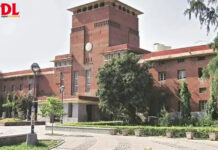Hindustan Unilever vice-president N Rajaram has joined Airtel to head its mobile business' marketing unit as the industry experts believe in a large restructuring process after falling behind key rivals in number portability campaigns and marketing strategies. Airtel is trying to regain its lost ground to Vodafone Essar and Idea Cellular in terms of revenues and customers and many changes are expected in the next two months. Strategising on various fronts to lure customers, the recent rollout by these two biggies of changing operators without changing the number has been one of the major reasons of bringing in the new marketing head. In the short term, he will have to bring more customers under the mobile number portability scheme. But his bigger challenge will be to convert existing customers to use high-end 3G services like ultra-fast internet, downloads, gaming, video-conferencing among others. Currently, Airtel gets only 13 per cent of its revenues through data services and the target is to increase it to 30 per cent. Rajaram replaces Shireesh Joshi, who will now handle Airtel's mobile advertising and internet presence, a new vertical created to cater to the growing data and online businesses, especially with the launch of the third generation (3G) services. Airtel trails Vodafone and Idea in poaching subscribers from other operators after the nationwide launch of mobile number portability (MNP) facility in late January. Vodafone has net gains of 1.93 lakh users under MNP in February, while Idea and Airtel added 1.51 lakh and 1.48 lakh subscribers, respectively. Rajaram's recruitment is in line with Bharti's strategy to poach talent from domestic and international markets for key positions. Over the last two to three years, the mobile phone company has brought in outside talent such as former T-Mobile's chief technology officer Joachim Horn to help expand its global footprint and interface with strategic partners, former Telstra International MD Kelton Drew to be its president for enterprise and its current CFO B Srikanth was previously with Unilever UK.
Reliance Comm’s price target gets cut by 26%
Goldman Sachs cut its 12-month target price on India's Reliance Communications by 26 percent to 115 rupees, citing reduction in the company's core business value. “For RCOM, our EPS cuts reflect disappointing 3Q results, higher financial leverage and a lower base effect,” Goldman Sachs said in a note on Wednesday, while maintaining its “neutral” rating on the stock. At 9:47 a.m. (0417 GMT), shares in Reliance Communications were up 1.1 percent at 104.65 rupees, while the main stock index climbed 0.5 percent.
Hyundai
Hyundai Motor, country's second largest car manufacturer, has announced the launch of its chrome-finish upgraded midsize sedan “Accent Executive 2011 edition”. The exteriors of the new edition comes starlet with a stylish front grille and the body coloured sideline molding is equipped with chrome inserts, besides a new chrome garnish over license plate. “The Accent 2011 edition comes with elegant styling which makes it more sophisticated and desirable. It is our continuous effort to gauge changing customer preferences and keep introducing new features in our products.We are confident that with the new styling the Accent 2011 edition will become even more popular”, Hyundai Motor India Director Sales and Marketing Arvind Saxena said. The new edition Accent Executive is priced at Rs 5.01 lakh (ex-showroom New Delhi), it said. The Accent launched in 1999 is also available with alternate fuel options such as CNG and LPG. The Korean car maker has sold over three lakh units in the overseas market.
Admissions open in MRIU, Faridabad
Manav Rachna International University invites the applications for doctoral, post-graduate, under-graduate, post graduate diploma, diploma and certificate programmes for the academic year 2011
Goa debates on fixing MOI in schools
The debate of finalising the medium of instruction (MOI) for students upto class eight has been bothering not only parents but also the lawmakers in Goa over mother tongue Konkani and English. After the central Right of children to Free and Compulsory Education Act envisaged that the mother tongue should be the medium of instruction for school children up to Class 8, over the last couple of years the MOI debate has been slowly welling up in Goa. After the issue was raised by Deputy Speaker Mauvin Godinho in the Goa legislative assembly on Friday, Education Minister Atanasio Monserrate told the house that a policy decision on the MOI issue would taken by April 8, when the budget session concludes. “The poor are sending their children to English medium schools because they believe that English will propel them to excel in their studies. Why, even the Chinese are learning English. Parents whose students are studying in (English medium) schools run by the Archdiocese (Church) are agitated. Why is the government disbursing grants only to Konkani/Marathi schools?” Godinho said. As per the education department's policy, schools with English as MOI – which includes several privately-run educational institutions and other schools run by the church in Goa – are not entitled to government funding. Godinho said the policy of debarring “English” schools from availing grants had failed. “Is Konkani only for the poor to study? Let the parents be given the choice (of deciding which MOI to choose),” Godinho said, with legislators from the ruling Congress backing his demand. Binar Barros, who has been articulating the concerns of parents and teachers in Goa, said that adoption of Konkani as MOI was like putting the future of their children in danger. “Figures available between 1991 till date reveal that around two lakh children have suffered because of the imposition of Konkani as a medium of instruction. We aren't expressing apprehension about Konkani,” he told the media. “If the mother tongue is made the medium of instruction from Class 1-8, it would be harming the future of our children,” Binar told the media. Calangute legislator Agnelo Fernandes said that MOI politics was virtually an extension of subtle casteist subjugation. “Should people come out on the streets? High caste people are sending their children for English education and are telling the poor to educate their children in Konkani. Give parents the choice, why should we impose it?” asked Fernandes. Leader of Opposition Manohar Parrikar of the Bharatiya Janata Party (BJP) said the issue needed to be examined by educationists and advised against a hasty decision. “This issue is not so casual so as to discuss it during (assembly's) zero hour. It requires deliberation. The right to education must be implemented only after discussion. This is too serious an issue. The government should discuss with the PTAs (parent-teacher associations) and management,” Parrikar said in the house. Monserrate said the government would take a “policy decision on the issue, by the end of the budget session”.
President appreciates Bihar govt
After an uprising in the women welfare and education in Bihar, President Pratibha Patil has praised the state government for its unique steps taken towards the development. Inaugurating the state Legislative Council's centenary celebrations in Patna, she said efforts of governments should be to enable even the weaker sections to enjoy the fruits of development. Mrs Patil expressed the hope that that legislators in the state will work along with Panchayati Raj institutions. She said Bihar is one of the first states in the country to have given 50 per cent reservation to women in Panchayati Raj institutions and congratulated the Bihar government for this. The President said during her last visit to the state in 2008, she had said the aim should be to give work opportunities to the women. She said the social structure should be made in such a way that women live with respect and pride. The President also advised the Bihar government to increase agriculture production and to develop the industry in the state. Mrs Patil also honoured the five longest serving former members of the Bihar legislative council. They are PN Sharma, Ram Nandan singh,Indra Kumar, Ramesh Prasad Singh and Sheo Nandan Prasad Singh. President also released a set of seven books on this occasion. These books are related to history and proceeding of the state legislative council. Besides chairman of the upper houses of UP, Karnataka, Andhra Pradesh and Jammu and Kashmir speakers of legislative assemblies of west Bengal and Orissa have also participated in the celebrations.
Punjab schools to include road safety in curriculum
The Punjab government has decided to make road safety part of the school curriculum from the academic session beginning next year. Worried over this disturbing trend of accidents, the government, which has witnessed an average of 300 accidents per month in 2010, decided to sensitise people, especially the children. “The decision to make road safety a part of school syllabus was taken during a meeting of officials with Transport Minister Master Mohan Lal,” State Transport Commissioner Hussan Lal said. “The Primary Education Director along with Education Department officials have been asked to prepare the syllabus. From academic session beginning 2012, we aim to introduce it in all schools throughout the state,” the Transport Commissioner added. “Experts from the Transport and Education Departments have begun the work on chalking out a syllabus. They are also studying the curriculum on road safety that is being taught in foreign countries. Since all our campaigns to sensitise people on the issue of road safety haven't yielded desired results, we have decided to introduce a mandatory subject on road safety in schools,” Lal said. According to the state police records, as many as 6,641 road accidents were reported, claiming 3,424 lives, in 2010. The figures were disturbing as it was highest in the last six years, prompting the state government to take some desperate measures.
UNESCO
The establishment of the Mahatma Gandhi Institute of Education for Peace and Sustainable Development in New Delhi as a part of a UNESCO initiative has been approved by the Union Cabinet. Strengthening the educational and knowledge base for promoting education of peace and sustainable development-related research, the institute will be managed through an operational agreement between the UNESCO and India, according to an official statement. Its establishment as a category one institute of the UNESCO was recommended by the international agency's executive board at its 182nd session held in September 2009 and approved by 35th the Session of General Conference of the UNESCO in October 2009, the statement said adding an estimate of Rs 223.68 crore has been made to set it up over a period of seven years. “It will put India into the group of select countries with a category one institute of UNESCO. Currently there are 11 category one Institutes of the UNESCO in the world, out of which nine are located in the developed countries while the remaining two are located in developing countries namely, Ethiopia and Venezuela,” the statement said. Category one institutes and centres are an integral part of the UNESCO and their governing bodies are either elected by the General Conference or appointed in whole or part by the Director General, UNESCO, and report to the General Conference. “It will serve as a platform for India to emerge as a global leader from the Asia-Pacific region in the areas of education for peace and sustainable development,” it added. The institute will also contribute to capacity building needs of member states with focus on Asia and the Pacific region.
Amazon sued over ‘App Store’ trademark
Apple is once again in news with its trademark issues and this time they have sued Amazon for using the term “App Store”. First reported by Bloomberg , the suite was filed last week after Amazon's use of the “App Store” name, which Apple filed a trademark for following the release of the iPhone 3G. The suit wants to prevent Amazon from referring the phrase on its site or in marketing materials, according to Bloomberg. Apple is also seeking damages. Amazon spokesperson Mary Osako denied comments. In a phone call with CNET, Apple spokesperson Kristin Huguet said that the move was to keep people from getting confused. “We've asked Amazon not to copy the app store name, because it will confuse and mislead customers,” Huguet said. Amazon first announced plans to enter the world of mobile-application publishing in September, unveiling a $99 developer program and an upcoming storefront called the “Appstore” that will sell Android applications outside of Google's own Marketplace application. As part of that process, Amazon gets either 70 percent of the sale price, or 20 percent of the list price (depending on what's higher). Besides Android, Amazon has hinted that it plans to expand into other operating systems, though that list is likely to not include Apple's iOS given the vertical nature both of the storefront, and the installation mechanism through iTunes on the desktop, as well as the App Store application on the mobile side. While Apple plays offense on Amazon, it's been playing defense against Microsoft over the same trademark. In January, Microsoft filed a motion against the trademark application, saying that it was too generic. Apple's response to that was then put to question by Microsoft earlier this month for trying to get around the font size, and length limits for legal briefs.
RTE Rules 2011 draft approved by state cabinet
The State Cabinet of Rajasthan has approved the draft of 'Rajasthan Right of Children to Free and Compulsory Education Rules 2011' (RTE Rules 2011), meant for implementation of the Centre's Right of Children to Free and Compulsory Education Act 2009. The meeting with the cabinet was chaired by Chief Minister Ashok Gehlot which gave approval to the draft. Government has drawn rules and guidelines for the implementation of Right of Children to Free and Compulsory Education Act 2009, an official said. Under this act, provisions to open primary schools within every one kilometre and upper primary schools within every two kilometres have been made. Provision has also been made so that all private schools, both government aided and unaided, will have to give admission to at least 25 per cent of their seats to students belonging to the weaker sections and no fee would be charged from them, he said.Rajasthan government would constitute a State Advisory Council under the chairmanship of the Education Minister for protecting child rights, the official said. In the meeting, approval was also given to the directives of Energy Conservation Building Code (ECBC) and the State Litigation Policy which would ensure efficient and effective execution of the litigation and quality improvement, he added.



















